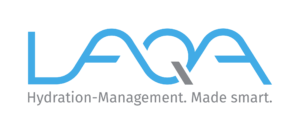Tap water in this country is normally of excellent quality. Drinking water is the best controlled foodstuff in Germany. Nevertheless, the waterworks only guarantee flawless water up to the house connection. Impairments are generally rare. But what can you do if a brown broth unexpectedly bubbles out of your tap or the tap water has a distinct aftertaste?
Quality and drinking water regulations
Water that is available via the water pipes is obtained from nature. Groundwater and naturally occurring springs are the main source of water. Sometimes rivers or lakes can also contribute to the water supply. However, before the water gushes out of the taps, it is strictly controlled by independent laboratories and water suppliers. This is because consumers can neither see nor taste some dangerous impurities or contaminants in the water. The Drinking Water Ordinance regulates the quality of water that is specifically intended for human consumption. This legal basis relates exclusively to drinking water. The Mineral and Table Water Ordinance forms the basis for industrially bottled water. Medicinal water is subject to the Medicinal Products Act.
The influence of lime, copper or plastic on water quality
Turbidity in drinking water is often associated with an excessively high lime content. However, in Germany, even in regions with more calcareous water, this is not so extremely high that it can lead to real water turbidity. However, calcareous water leads to a higher water hardness and affects the taste. It also puts a strain on coffee machines and kettles. For a healthy human body, however, water of the hardness levels found in Germany is harmless. If the more or less cloudy water tastes of plastic or copper, the cause often lies in the water installation in the house. Water pipes or fittings could be damaged. Low water pressure can also lead to initial clouding of the tap water. Nevertheless, it is advisable not to drink the water if there are any abnormalities and to contact the landlord or, in the case of property, a technician as soon as possible. A call to the local water supplier can also quickly clarify whether the problem is in-house or general.
Water controls protect against contamination
There may be chemical or microbiological impurities in naturally occurring water. These can severely impair health. The checks carried out by water suppliers and independent laboratories ensure that no pathogens, such as legionella, coli bacteria or pseudomonads, get into the drinking water. In addition, heavy metals such as cadmium, lead, zinc, iron, nickel or copper must not exceed certain concentration limits. Metals can get into the drinking water, particularly through corrosion in the pipe network or through deposits in an older pipe system. In addition to ongoing checks in the drinking water network, private households can also have their water tested. Pharmacies, water suppliers or energy providers usually offer such analyses on a regional basis.
A note for apartments in old buildings: If you live in an apartment in an old building, you should ask your landlord whether the water is supplied via lead pipes. Old water systems can often still be found, especially in towns with a historic old town area. Drinking water that enters the household via lead pipes is not suitable for preparing drinks and food for infants, small children and pregnant women.
